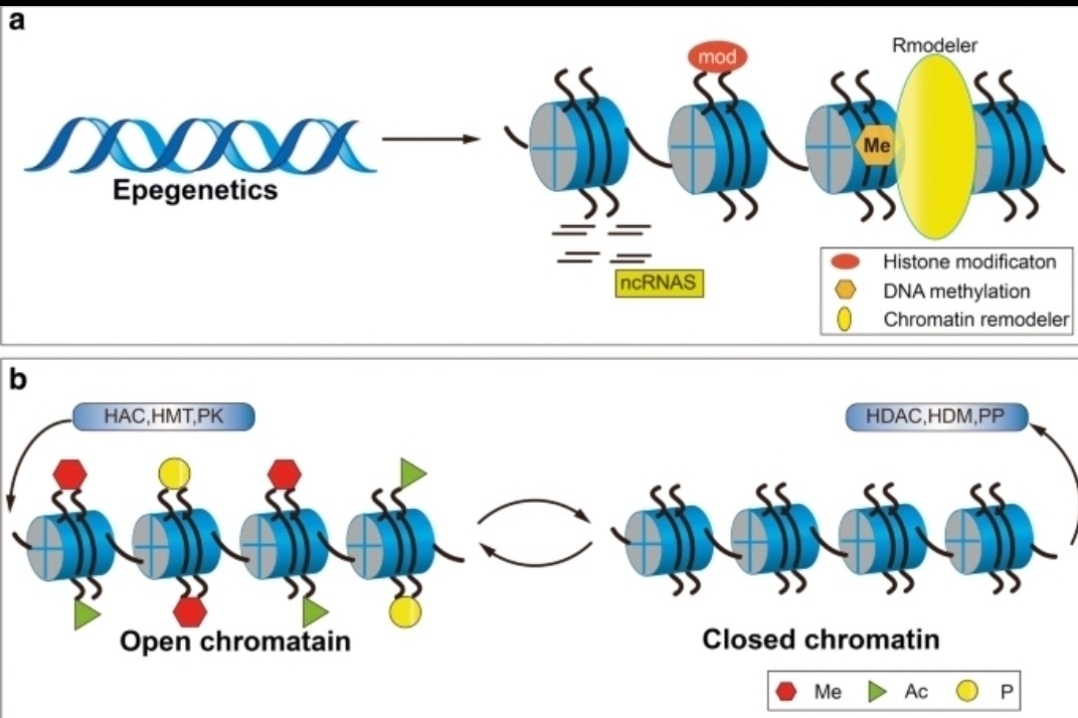The Adaptable Mind: How Epigenetics Rewrites Consciousness and Challenges Evolutionary Dogma
A profound shift is underway in our understanding of the intricate dance between genes, environment, and the elusive nature of human consciousness. The burgeoning field of epigenetics, which explores modifications to DNA that don't change the sequence itself but profoundly alter gene activity, is at the heart of this revolution. A growing body of research, including insightful reviews such as "A review of epigenetics in human consciousness," suggests that epigenetic mechanisms are not only pivotal in shaping our conscious experiences but also pose significant challenges to the long-held tenets of neo-Darwinism.
Epigenetics offers a dynamic layer of control over our genetic blueprint, acting as a switchboard that determines which genes are turned on or off in response to a myriad of influences.
This regulatory system is deeply implicated in the development and functioning of the human brain, the very seat of consciousness. From the earliest stages of neurodevelopment, epigenetic processes like DNA methylation (the addition of a methyl group to DNA) and histone modification (changes to the proteins around which DNA is wound) sculpt neural circuits and refine synaptic connections.These processes are not static; they remain active throughout life, allowing the brain to adapt to new experiences, learn, and form memories.The involvement of epigenetics in consciousness is multifaceted. Firstly, it provides a mechanism through which environmental factors can leave a lasting imprint on brain function and, consequently, on our subjective experiences.
Stress, diet, toxins, and even social interactions can trigger epigenetic changes that influence mood, cognitive abilities, and susceptibility to mental health conditions. For instance, chronic stress has been shown to induce epigenetic modifications in genes related to the stress response system, potentially leading to anxiety or depression. Conversely, enriching experiences and positive mental states might also exert their influence through epigenetic pathways, promoting resilience and well-being.
Furthermore, some research suggests a fascinating bidirectional relationship: not only can environmental inputs shape our epigenome and influence consciousness, but our conscious states themselves – our thoughts, emotions, and perceptions – might also impact epigenetic regulation. While this area is still developing, it opens the tantalizing possibility that practices like mindfulness or psychotherapy could lead to tangible changes at the molecular level, fostering mental and physical health by altering gene expression profiles.
The implications of these epigenetic mechanisms extend beyond individual lifetimes, venturing into territory that directly challenges the foundational principles of neo-Darwinism. For over a century, neo-Darwinism has posited that evolution primarily occurs through random genetic mutations, with natural selection acting as the principal force shaping the heritable traits of a population.
This "gene-centric" view emphasizes that only changes in the DNA sequence itself are passed down to subsequent generations.However, the discovery of transgenerational epigenetic inheritance – where environmentally induced epigenetic marks are transmitted across generations – complicates this picture significantly. Studies in various organisms, including mammals, have demonstrated that experiences of ancestors, such as exposure to stress or particular diets, can lead to epigenetic changes that are passed down to offspring, influencing their phenotype and even their behavior, without any alteration in the underlying DNA sequence.
This phenomenon challenges neo-Darwinism in several key ways:
Rapidity of Adaptation: Neo-Darwinian evolution is generally seen as a slow, gradual process, reliant on the chance occurrence of beneficial mutations. Epigenetic modifications, however, can occur much more rapidly in response to environmental cues. If these changes can be inherited, it suggests a mechanism for faster adaptation to changing conditions than traditional evolutionary theory would predict. This could allow populations to adjust to new environmental pressures within a few generations, rather than over vast evolutionary timescales.
Directed Variation: Neo-Darwinism emphasizes the randomness of mutations. Epigenetic changes, in contrast, are often specific responses to particular environmental stimuli.
If these directed (or at least environmentally influenced) changes can be inherited, it introduces a Lamarckian-like element into evolution – the idea that acquired characteristics can be passed on. While not a full return to Lamarckism, it suggests that inheritance is more nuanced than solely gene-based transmission.
The Centrality of the Gene: Epigenetics highlights that the expression and impact of genes are highly context-dependent and modifiable by factors external to the DNA sequence itself. This shifts the focus from a purely gene-deterministic view to a more holistic understanding of the organism as an active participant in its own development and potentially its evolutionary trajectory. The organism and its interaction with the environment play a more crucial role in shaping heritable traits than previously acknowledged by strict neo-Darwinian thought.
Soft Inheritance: The concept of "soft inheritance," which includes epigenetic inheritance, proposes that there are heritable variations that are not encoded in the DNA sequence. This contrasts with the "hard inheritance" of genetic mutations central to neo-Darwinism. The acknowledgment of soft inheritance broadens the scope of what can be considered evolutionarily relevant.
In the context of human consciousness, the potential for transgenerational epigenetic inheritance adds another layer of complexity. It suggests that the experiences and mental states of our ancestors could have subtle, epigenetically mediated influences on our own neurobiology and, by extension, our predispositions related to consciousness, such as temperament or vulnerability to certain psychological conditions.
In conclusion, the exploration of epigenetics in human consciousness is revealing a sophisticated interplay between our genes, our environment, and our subjective experiences. Epigenetic mechanisms are crucial for brain development, plasticity, and our response to the world around us. Beyond the individual, the heritable nature of some epigenetic marks presents a compelling challenge to the traditional framework of neo-Darwinism, suggesting that evolution might be more responsive, multifaceted, and less gene-centric than previously envisioned. As research continues to unravel the intricate workings of the epigenome, we may find ourselves not only with a deeper understanding of the mind but also with a revised perspective on the very processes that shape life on Earth.







Comments
Post a Comment